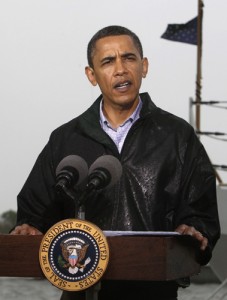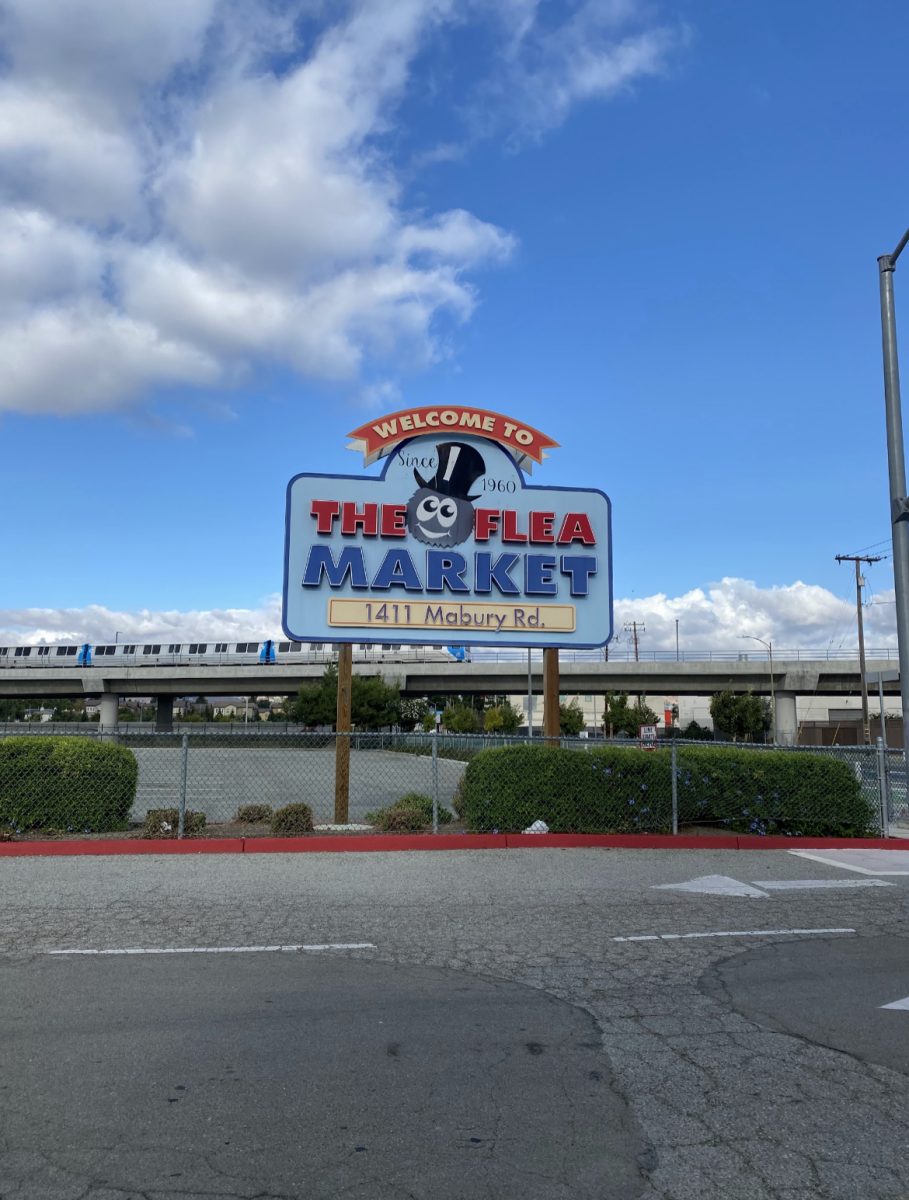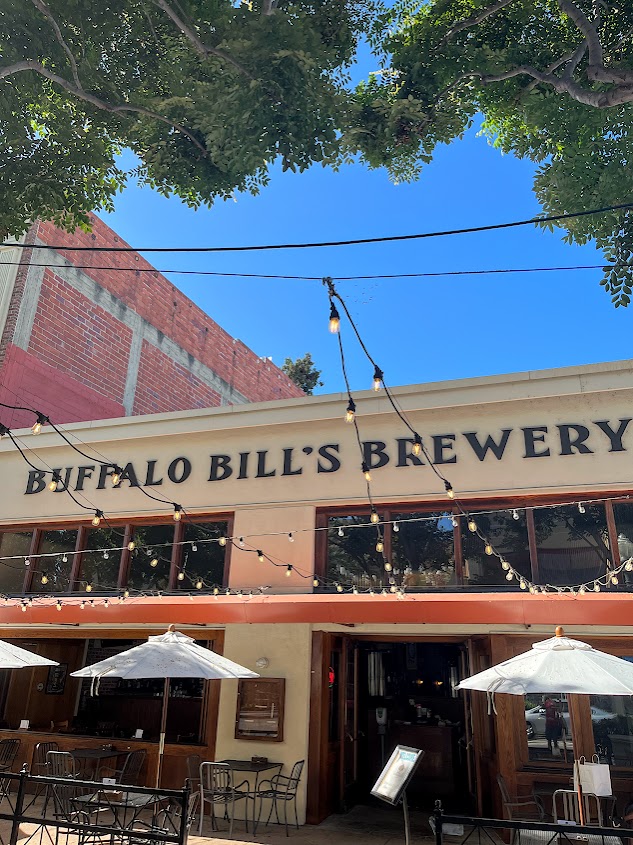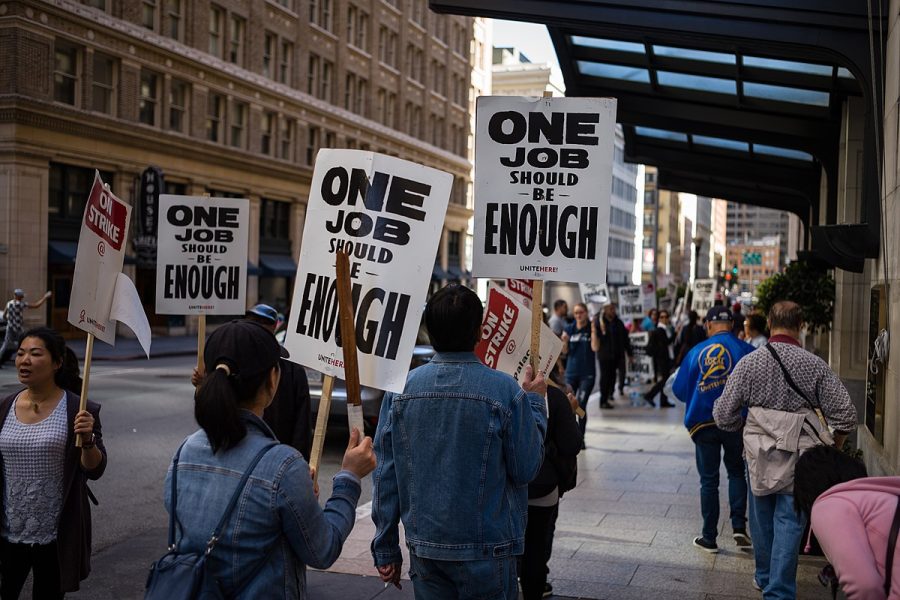In light of the large oil spill plaguing the Gulf of Mexico, the Obama administration has decided to put new offshore drilling on-hold.
“No additional drilling has been authorized and none will until we find out what happened here and whether there was something unique and preventable here,” said White House Senior Adviser David Axelrod.

Included in President Obama’s new energy plan announced last month, offshore drilling was planned for expansion on the East Coast, in Alaska, and in the Gulf of Mexico, while other areas were to be avoided due to overwhelming public opposition. The Department of the Interior estimated that 1712.26 million acres of coastline were to be surveyed for possible offshore drilling.
While experts say it is too early to determine the full damage of the spill, the National Oceanic and Atmospheric Administration reports 210,000 gallons of oil per day is still flowing into the Gulf of Mexico.
In accordance with the 1990 Oil Pollution Act, the government assures Beyond Petroleum (BP) is absolving all costs of the cleanup.
“Our message continues to focus on three main goals: Stop the flow of oil; minimize the impact; keep the public informed,” said BP, “Our commitment is to clean up the spill, honor every legitimate claim, and find out what happened and fix it.”
Chairman of the House Energy and Commerce Subcommittee on Oversight and Investigations, U.S. Congressman Bart Stupak, said, “Oversight and Investigations staff has been following the events and developments of this tragedy closely since the April 20 oil rig explosion and the ensuing oil spill. Right now this spill is at risk to be one of worst environmental disasters in U.S. history.
“I look forward to our Oversight and Investigations hearing next Wednesday, May 12 where we will hear from company officials and discuss what may have happened the day of the explosion as well as what efforts are being made to minimize the environmental effects of the spill. This is the first of what will likely be several hearings into what went wrong on April 20 and the following days. The answers to these questions will be vital to putting in place protections necessary to prevent a tragedy like this from happening again in the future.
“BP has a long history with the Oversight and Investigations Subcommittee. We have investigated several spills in BP’s North Slope, Alaska drilling, including the 2006 spill that resulted in more than 200,000 gallons of oil leaking into the tundra.”
“We need assurance that this won’t happen again,” said Sierra Club Executive Director Michael Brune, “We need to restore the federal moratorium on drilling off America’s most fragile coasts, immediately. Then we need to launch an aggressive plan to wean us from dirty oil over the next two decades.”
“We are pleased that the White House is signaling a suspension of any new off-shore drilling during the investigation, but there should be no doubt left that drilling is too dirty and dangerous for our coasts and the people who live there. This offshore facility was supposed to be state-of-the-art. We’ve been assured again and again that the hundreds of offshore drilling rigs along our beaches are completely safe.
“This same disaster could happen at any one of the hundreds of drilling platforms off our coasts, at any moment. It could happen at the drilling sites they’ve proposed opening along the beaches of the Atlantic Coast.”
While questions about the safety of offshore drilling continue, the American Petroleum Institute (API) maintains the oil and natural gas industry is subject to strict regulation.
“Safety is a core value of the oil and natural gas industry,” said API, “We have a strong safety performance record, and we continue to improve upon it. According to data from the Mineral Management Service (MMS), the overall safety and environmental performance on the U.S. Outer Continental Shelf (OCS) has shown steady improvement over the past decade. Stringent regulatory oversight helps maintain environmental performance, and offshore operators are required to obtain 17 major federal permits and comply with 90 sets of federal and state regulations to operate on OCS. Furthermore, MMS and the U.S. Coast Guard conduct thousands of offshore facility inspections each year.”
“Finding alternative energy simply must be the highest priority of any rational administration,” said Cal State East Bay political science professor David Baggins, “The ‘drill baby drill’ attitude only leads to further degradation of the planet as well as war and economic decline. This is America’s core challenge, to find alternative energy and efficiencies that move the nation and world to sustainable profitable energy. Whoever leads that direction is a good leader and we can only hope that Obama is that leader. So far, he has given words that indicate energy consciousness, but it has not proven his real priority.”












